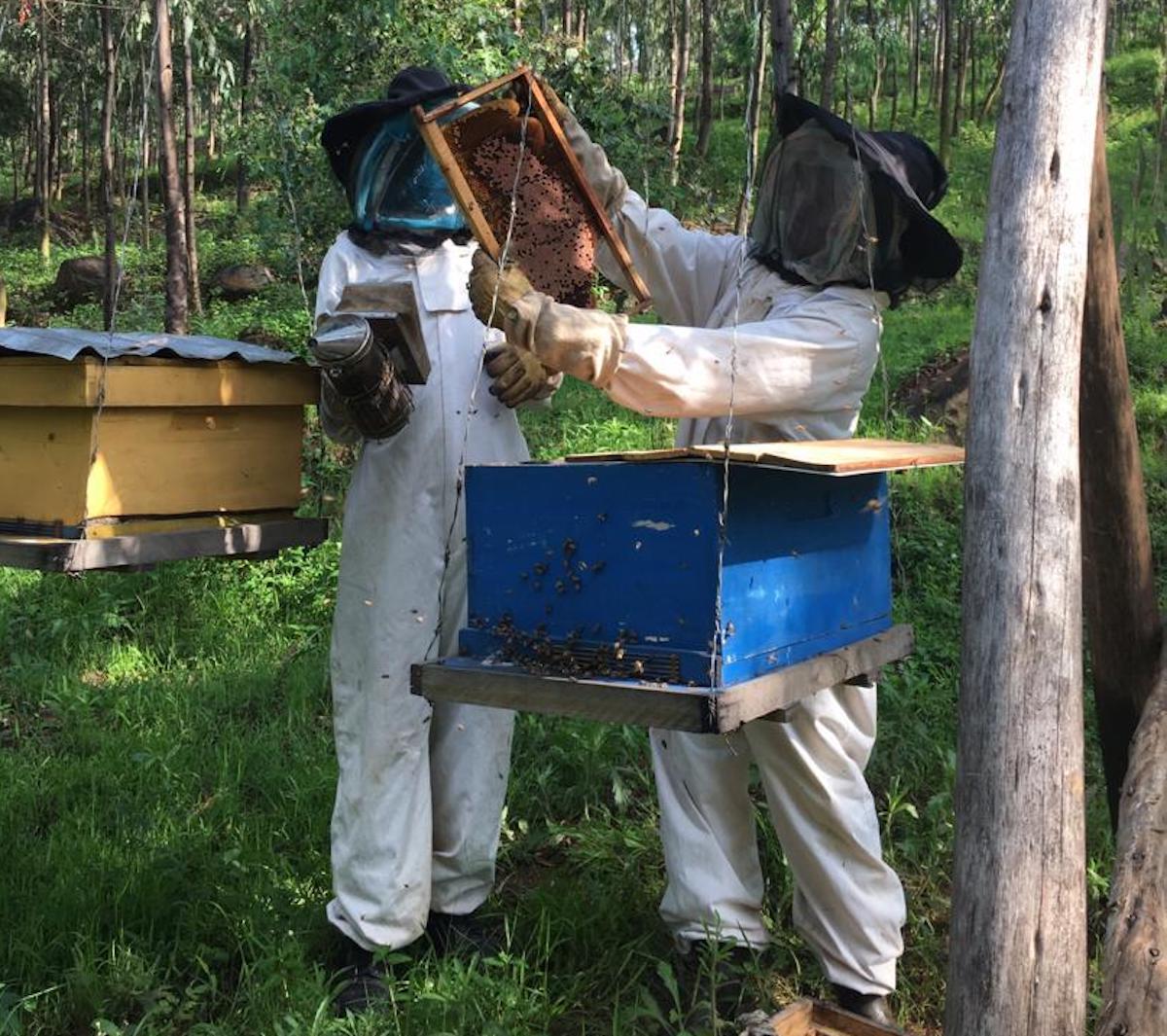Building a beekeeping business in Nyabiheke Refugee Camp
“This is something quite special, it’s motivating to people. And we have big dreams for it…I see this growing bigger and bigger.”
Victor K. Nsengiyumva is the Site Manager in Nyabiheke Refugee Camp in Rwanda, home to 14,000 refugees, mainly from Congo. It’s his job to ensure all the camp’s operations run by Alight—including primary health services, and prevention and protection of refugee clients from gender based violence or abuse—are working smoothly and seamlessly, providing residents with the best quality of care possible.
He also keeps an eye out for new opportunities—ways to make the camp experience that much better. And for Victor, the beekeeping project, which officially kicked off in 2017, is one of them.
The project began with six refugees (mainly teenagers or single parents), an Alight staff member, and an idea. What if they could form a beekeeping cooperative—with honey being a very popular product in Rwanda—and use that to support their families? Some basic items for living are provided within the camp, but oftentimes people’s needs outgrow the supplies. There’s often not a lot of extra resources to purchase things like clothing or soap. Having a product to sell and profits to share could make a huge impact on their daily lives.
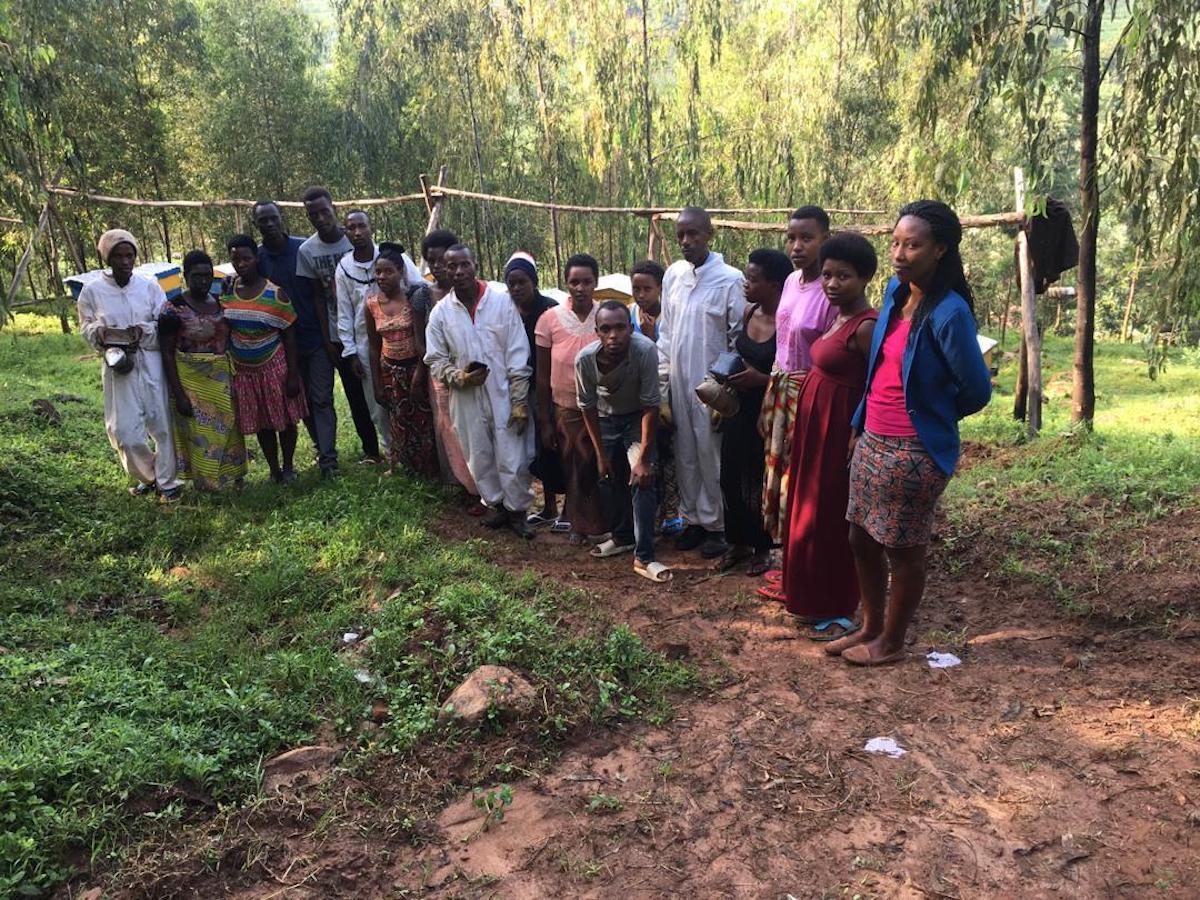
So with Alight’s support of the starter materials, training to the group, and allocated land next to our health center in Nyabiheke, the cooperative got to work. Naming themselves Twisungane, which means “ Let’s Support each other” in Kinyarwanda, the group—a mix of men and women, young and old—was excited to get started. They waited for the bees to produce honey. But over a year went by without producing a harvest.
“It felt like a bit of a failure,” said Victor. “We didn’t understand why it wasn’t working.”
Alight intervened to conduct an assessment. And with the help of some experts, they soon realized that the location itself was the problem—it was nestled in the forest, and it was much too cold and shady for the bees to produce. Together with the Alight team, the cooperative moved the entire operation to a different location in the sun. And things only got better from there.
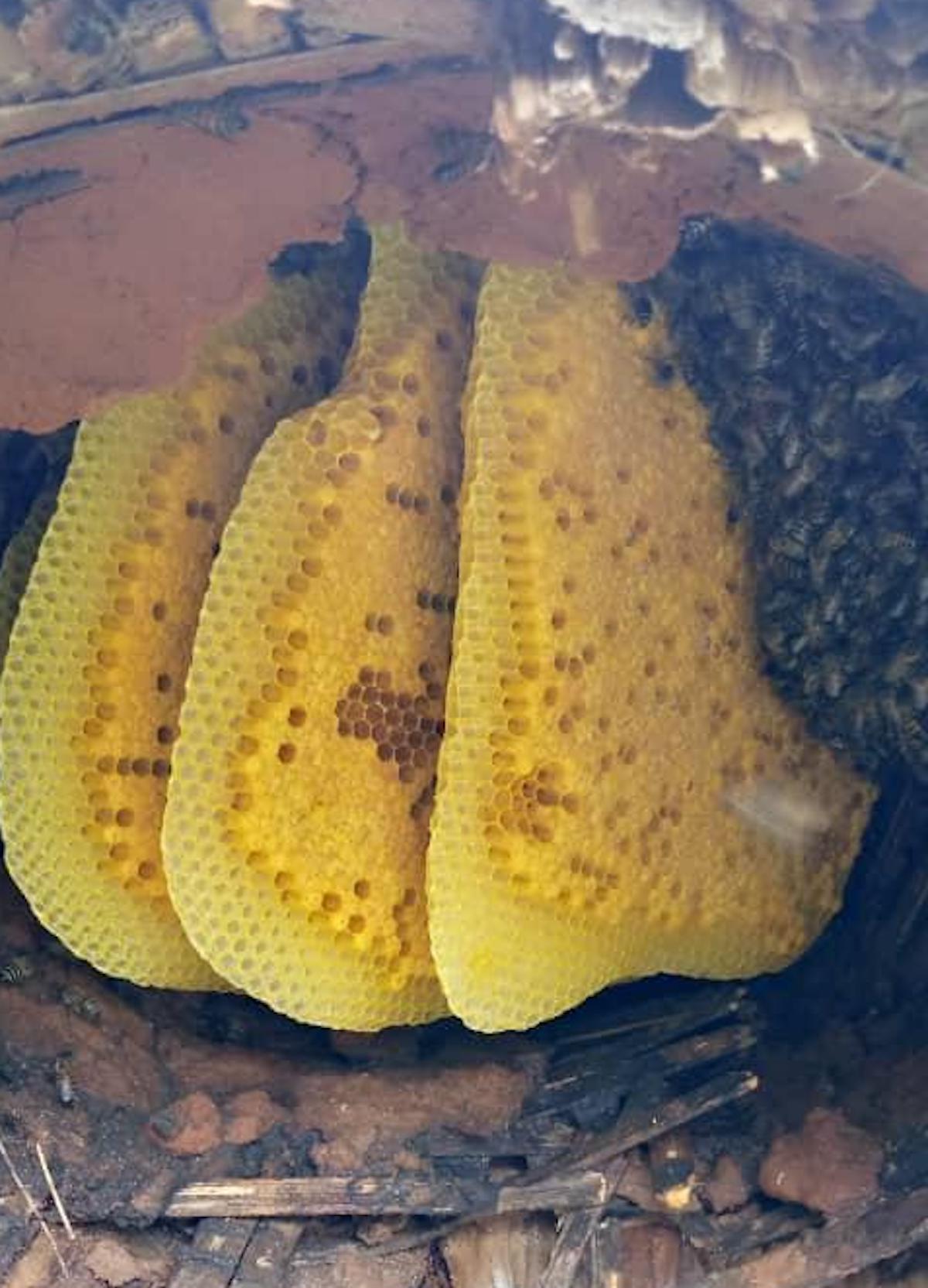
“This hasn’t been easy for us,” said Fiston, the president of the cooperative. “But we knew we had Alight’s support. And we were encouraged to try again, let us try and see.” Once they knew that positive change was coming, they had hope that things would go better in the future. And that’s what happened.
March 2019 saw the first harvest. It was modest at only 15 kilograms of honey, but the excitement of producing was enough to re-energize the members of the cooperative and keep things moving.
“Everyone was so excited,” remembered Ciza, a member of the cooperative. “We were able to get something for the first time, after being so patient! And from there, the quantity increased…it went from 15kgs, to 50 kgs, and now we’re at a total quantity harvested at 100 kgs! We’re beginning to get more and more excited.”
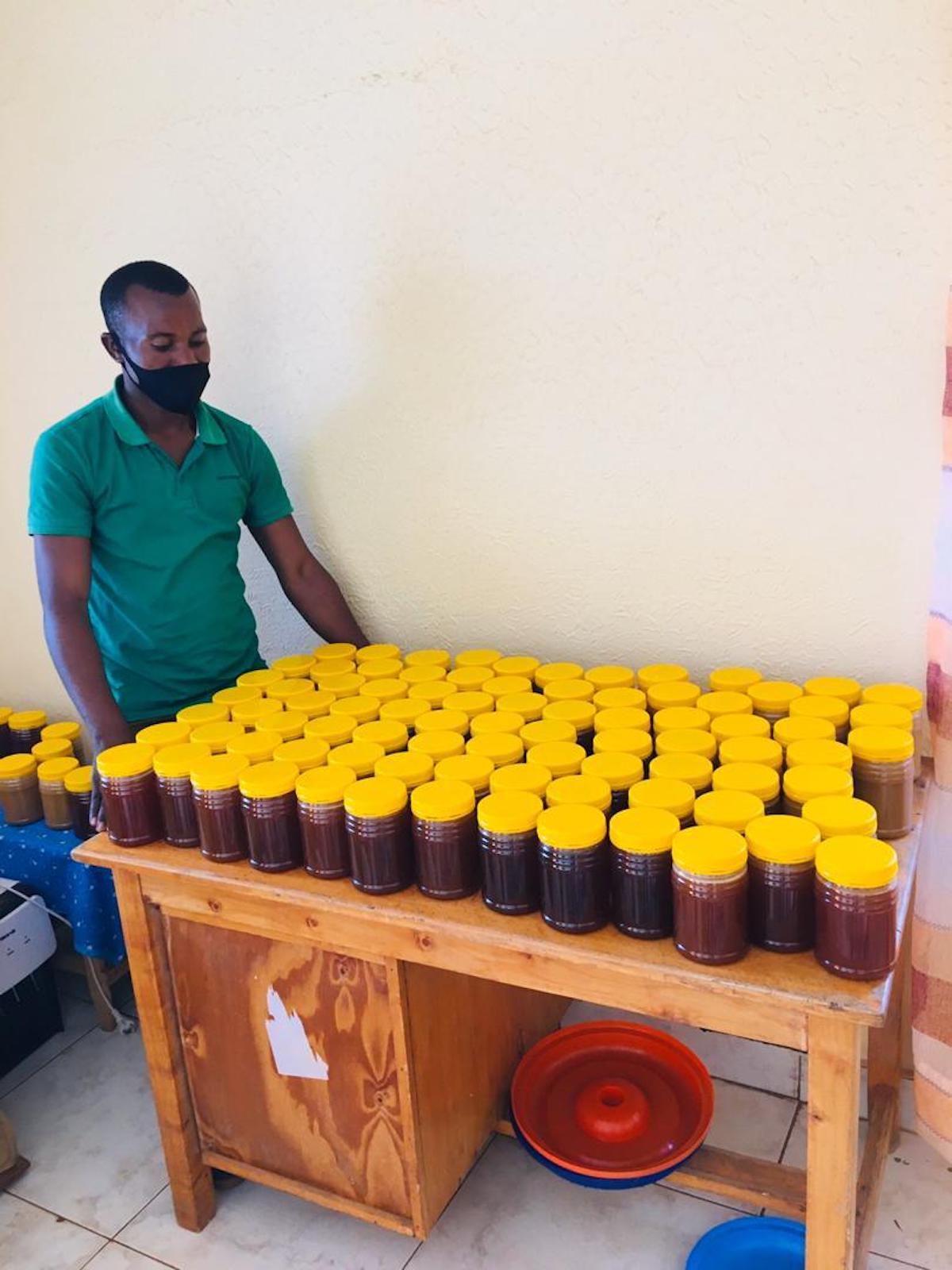
Now, the cooperative is off and selling their honey, finally seeing the impact they had hoped for when they started. They’re selling each kilogram of honey for 5,000 Rwandan Francs, about $5. So, they’re able to start saving up.
One of their biggest clients and fans? The Alight Rwanda office in Kigali! Everyone recognized how delicious and pure the cooperative’s honey was right away, and it was soon in high demand with the office staff and their families. The cooperative is also selling their honey at the small shop in Nyabiheke, where visitors and staff from other NGOs can purchase the jars. It has earned itself quite a reputation! Because of the honey’s growing popularity, the group sees enormous potential for expansion. The one problem? They need more honey.
“The issue is the quantity — the demand is higher than what we have!” said Ciza. “But we are only at the starting point.” As the group continues to learn and grow, so will the honey supply.
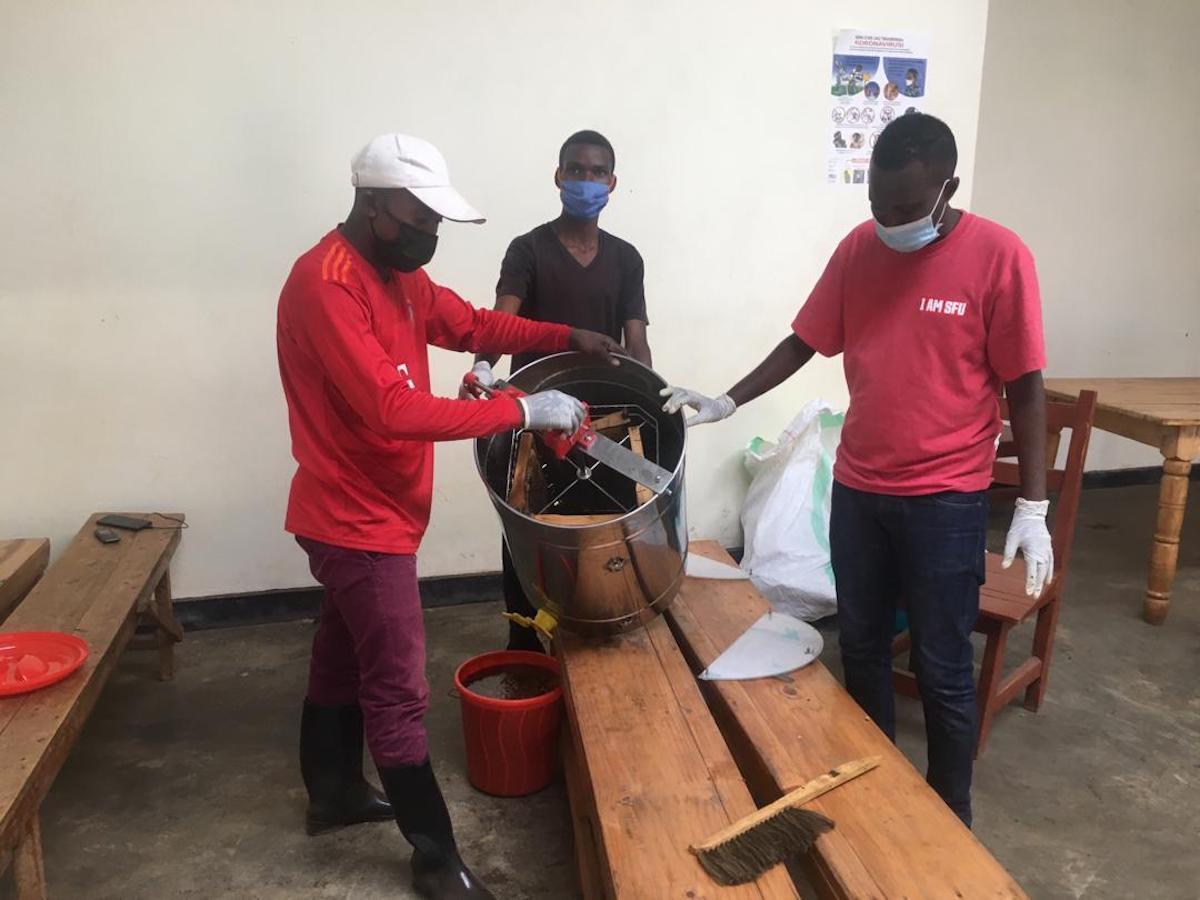
Right now, the cooperative is waiting patiently, allowing their shared pot of resources—and their business—to grow. The hope is that by the end of 2021, they’ll have enough profits to start enjoying the surplus a bit more, and maybe even enjoy an extra special Christmas with their families. It’s all about having patience—and big dreams.
“Our dream is that in five years, we’ll be able to grow enough to sell the honey to a bigger market. It can even be exported!” said Victor. “Can you imagine going into the supermarket and finding this honey that’s made in Nyabiheke camp, supported by Alight? Why not sell it in the U.S., in Minnesota? We’ll take great pride knowing that this honey was made by refugees in the camp, and that people’s lives are better for it.”
Want to learn more and help support Twisungane’s honey production to reach new heights? Contact Betty Umugiraneza at BettyU@WeAreAlight.org or give to support the project today.
